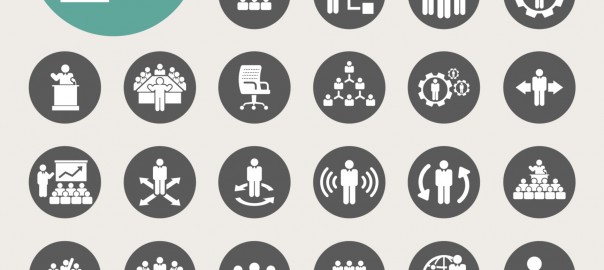
As the President of a growing agency, it seems every week I find myself in a conversation about employee retention. Based on what I hear from other agency leaders, I’m not alone. As an industry, we know that what we sell – counsel and expertise – walks out the door at the end of each day.
So I was fascinated to read a Vox piece last week looking at LinkedIn Founder Reid Hoffman’s new book “The Alliance”. The article examines what Hoffman argues is the “dishonest conversation” between employees and employers. In particular I found myself circling around his idea that both sides should look at a job as a “tour of duty” vs. a lifetime contract. His theory is we can set up a more honest exchange that serves both the employee and the business by simply asking “what do you want your next job after this to be? How can working here be transformative for your career?”
If we all acknowledge that a) employment isn’t for life, and b) relationships can still flourish AFTER someone leaves (this is often how the best networks are built), then this approach could be very liberating.
I find this dovetails well with a main theme explored by Sheryl Sandberg in her book “Lean In” (and discussed in greater detail in this Forbes article.) According to Sandberg, it’s better to look at your career as a jungle gym than a ladder – with twists, turns and unexpected connections that together create a career of depth and experience.
In both these theories, the “potential for growth” is the driver. As a leader I want that for our employees, our Agency and our industry. So, the question becomes how can employers ensure they are building a transformative jungle gym for their employees to explore?
Talk Openly About Long-Term Professional Development
We need to commit to a new dialogue about the skills someone needs for the job they have, AND the skills and experience they need for the career they want.
Hoffman calls it, “bringing honesty to a collective self-deception dance.” Fact is we should all have the mechanisms in place to turn the tables on this conversation through performance review processes, recruiting practices and succession planning. Simply asking the question – “what do you want your next job after this to be” is step one.
Create Your Own Internal Jungle Gym
This requires a commitment to being open to creating experiences and opportunities for employees. With the average job tenure for U.S. workers coming in at around 4 years, it’s clear that people jump around for new experiences and opportunities. In an industry as competitive and evolving as marketing and PR, we should certainly be able to create these opportunities within our current structure.
Perhaps it means exchanges to other goes, creating specialist roles that play to the strengths of individual employees or encouraging moves to other departments and disciplines. Remember, if it’s a tour of duty, we should want every employee to do the best work of their career during their tour with us. Create the opportunity and it’s up to them to seize it.
Embrace the Boomerang
Even if the employer and employee do everything right, life choices and timing can still lead to departures – and that’s ok. If we can change the conversation, we can create a culture where someone can (and will want to) come back. And by the way, they bring new experiences, insights and relationships that can make your organization better.
Social media creates opportunities to engage with alumni in a more consistent and transparent way, and for an industry as small as ours, it seems a natural step to take to grow a culture of collaboration.
The Client Dynamic
At the end of the day, in a client service business such as ours, we need to extend this dialogue to our clients as well.
Too often, we wrestle with making that call to the client to tell them that Jane or Bill has moved on – even when it’s for a life change that we couldn’t predict. Some clients get it, others understandably get rattled. So instead, I think we need to grow more comfortable talking about why they are choosing to work with our Agency vs. this person or that person. It requires us to position every member of the team as a representative of the Agency, trained and grounded in our mission and vision. And it requires us to acknowledge the reality that we may, for a period of time, be one stop on someone’s jungle gym – and that’s o.k.
(213)
Report Post





